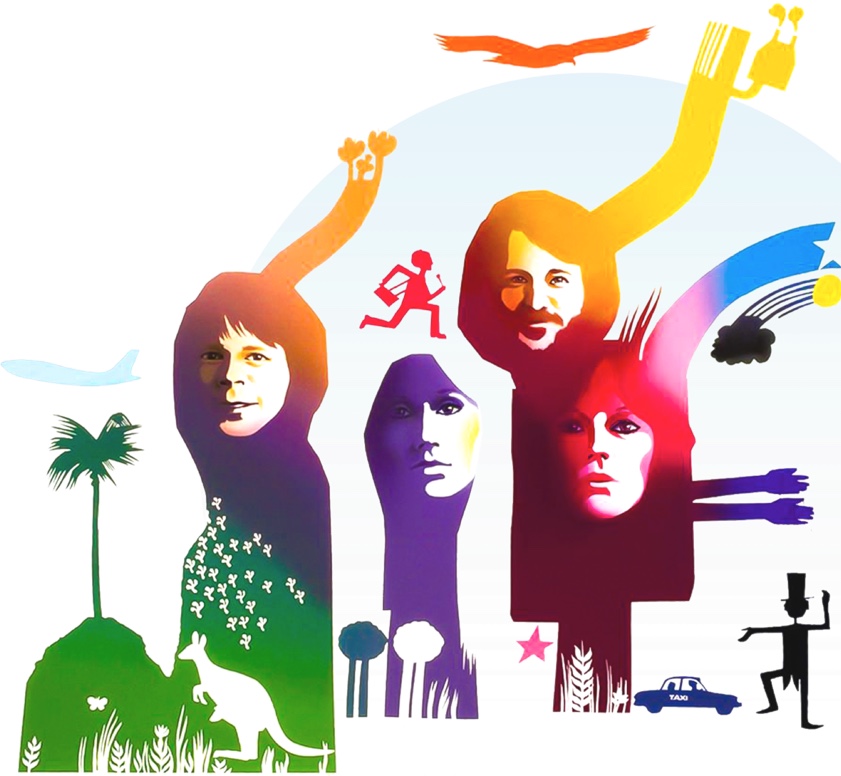In focus: ABBA On Stage
During ABBA’s years as an active group, most top-level artists were expected to conduct regular, extensive worldwide tours. Although ABBA didn’t quite play the game according to the rules, they did meet their audience from time to time.
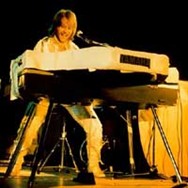 To tour or not to tour
To tour or not to tour
Among the essential requirements of pop and rock stars in the 1970s, ABBA complied with some while disregarding others. For example, at the time artists were expected to release roughly an album per year, and a glance at ABBA’s discography shows that they lived up to that rule almost without fail. But out of the other important ”demands” on a group of their stature, as regards the matter of regular and extensive touring, ABBA chose a path that was altogether different to almost all their competitors.
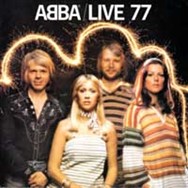 So what was the reason for this reluctance to whizz across the world, enjoying the rapturous reception of the audiences, basking in the glow of unreserved adulation, rocking out with their fellow musicians? There wasn’t one single, convenient answer. Partly it was a matter of being “toured-out” already: Björn and Benny had each performed at least 1,000 concerts when they were members of the Hootenanny Singers and The Hep Stars, respectively, in the 1960s. Just before ABBA started, they had envisioned a future as songwriters and producers; they were moving away from stage performances and were counting on a quiet ”behind-the-scenes” career. Much of that thinking prevailed even after ABBA had become a worldwide phenomenon. The whole group felt that writing and recording the songs was what was really important and stimulating. There was also the matter of Agnetha, who became a mother twice during the ABBA years. She preferred to spend as much time as possible at home, together with her children, and found it impossible to favour long tours. Both Agnetha and Frida also had several hundred gigs and jobs as dance band entertainers behind them before ABBA started.
So what was the reason for this reluctance to whizz across the world, enjoying the rapturous reception of the audiences, basking in the glow of unreserved adulation, rocking out with their fellow musicians? There wasn’t one single, convenient answer. Partly it was a matter of being “toured-out” already: Björn and Benny had each performed at least 1,000 concerts when they were members of the Hootenanny Singers and The Hep Stars, respectively, in the 1960s. Just before ABBA started, they had envisioned a future as songwriters and producers; they were moving away from stage performances and were counting on a quiet ”behind-the-scenes” career. Much of that thinking prevailed even after ABBA had become a worldwide phenomenon. The whole group felt that writing and recording the songs was what was really important and stimulating. There was also the matter of Agnetha, who became a mother twice during the ABBA years. She preferred to spend as much time as possible at home, together with her children, and found it impossible to favour long tours. Both Agnetha and Frida also had several hundred gigs and jobs as dance band entertainers behind them before ABBA started.
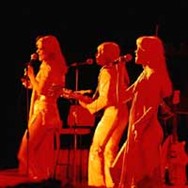 Park ventures and European explorations
Park ventures and European explorations
Nevertheless, ABBA did perform the occasional tour during their time together. The very first time the four of them appeared on stage together was in 1970, when they put together the cabaret show Festfolk. The show opened at a restaurant in Gothenburg, and then went out on a short tour of Sweden. The cabaret experience was quite disastrous and almost meant the end of their foursome collaboration for all time. But after making yet another attempt at working together – this time in the less stressful environment of the recording studio – they garnered success as the pop group Björn and Benny, Agnetha and Frida. All of a sudden a hit group, they went on an extensive summer tour of the Swedish folkparks in 1973, playing a reported 80 gigs during a three-month period.
Then, in 1974, the international breakthrough with ’Waterloo’ happened. At the same time the four friends cemented their working relationships and changed their name to ABBA. It was only then that they conducted a tour that took them outside Swedish soil. The original plans for the outing were quite extensive, but it was soon clear that the ’Waterloo’ hit alone would not be enough to sustain a really major tour. Tentative dates in England, Scotland, The Netherlands, Belgium, France, Turkey, Israel, Greece, Yugoslavia and Spain were abandoned, and only West Germany, Austria, Switzerland and the Nordic countries remained. Agnetha and Björn didn’t want to be away from their one-year-old daughter Linda for too long either, and therefore the itinerary was divided into two parts: Denmark, West Germany, Austria and Switzerland in November (as it turned out, the Switzerland concert was cancelled because of poor ticket sales), with a trek of the Nordic countries following in January 1975. However, except for this last leg of the tour, the venture was only partially successful. Clearly, ABBA had not built up the broad fan base needed to truly attract a non-Scandinavian audience to a concert hall.
During the summer of 1975, Björn, Benny, Agnetha and Frida made their second and last trek of the Swedish folkparks, although it was much less extensive than the outing two years earlier. The folkpark circuit had traditionally been a very modest set-up, where artists were expected to perform two or sometimes three gigs a day – at different venues. They would rush in to the park, set up their gear and storm through a 30-minute show before dashing off to the next engagement. In 1975, ABBA were bona fide pop stars and had altogether different ambitions with their concerts, bringing a quite elaborate show with special effects into the parks. In part, the tour also served to compensate for a cancelled outing planned for the previous summer.
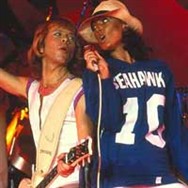
After the experience of the 1974/1975 tour it would take two years before ABBA played outside Sweden again. At the end of January 1977, they began a tour of Europe and Australia. Again, the venture had been divided into two parts to accommodate Agnetha and Björn’s need to be at home with their daughter. After the European trek had been concluded in mid-February the band took a two-week break before heading out to Australia. There they were confronted with what must rank as the most hysterical and overwhelming reception on any of their tours. Quite simply, during the two weeks spent in Australia fans and media besieged the group virtually around the clock, the streets were lined with people whenever they arrived in a new city, and in Melbourne they were even asked to step out on the balcony of the Town Hall to greet the ecstatic crowds. The experience of the Australian tour left an indelible memory on the entire group, not least Agnetha who later said that she never quite overcame the experience of being surrounded by fan hysteria everywhere she went.
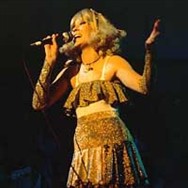
The final shows
A further two and a half years elapsed before ABBA went on tour again. In the meantime, Agnetha and Björn had become parents for the second time and then divorced. Agnetha was now more eager than ever to stay home with her children. However, in 1979 the group agreed that it was high time that they did a tour again, and they also wanted to explore the possibility of improving their fortunes in North America, where they had only done television appearances before. In September they set out on a tour of North America and Europe, starting in Canada. The three weeks in North America were followed by a ten-day break before the group ventured out on their tour of Europe. Perhaps the most famous part of this tour was the six nights spent at London’s Wembley Arena, where ABBA’s television special ABBA In Concert was filmed. As it turned out, ABBA In Concert and ABBA – The Movie were to remain the only documents available to show the group live in a bona fide arena concert. In 2004, ABBA In Concert was released on DVD, with rare bonus selections. Read more about ABBA’s tour of North America and Europe in the Articles archive.
After returning home from the tour of Europe in November 1979, ABBA took a break, then started writing and recording what was to become the Super Trouper album. But in March 1980, they put on their stage costumes again, embarking on what was to be their very last tour as they spent three weeks visiting the arenas of Japan. After the Japanese venture, ABBA’s public profile became lower than ever, with a minimum amount of television performances as their only public outings. In early 1981, Benny and Frida announced their divorce, killing the last vestiges of romance in the ABBA image and further increasing the emotional distance between the four friends. At the end of 1982, the group finally called it a day. The ABBA era was over.
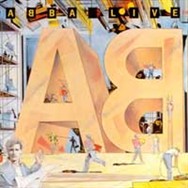
ABBA tour dates
This list of live concerts covers the tours conducted during the period 1974–1980, when the group operated under the name ABBA. It lists only concerts actually played, not dates that were cancelled or prematurely announced. Furthermore, it is limited to concerts played as part of an official tour, not one-off club gigs.
1974 Tour of Europe
November 17. Copenhagen, Denmark: Falkonercentret
November 18. Hanover, West Germany: Kuppelsaal
November 19. Munich, West Germany: Deutsches Museum
November 21. Frankfurt, West Germany: Jahrhunderthalle
November 22. Berlin, West Germany: Hochschule für Musik
November 23. Nuremberg, West Germany: Meistersingerhalle
November 25. Innsbruck, Austria: Kongresshaus
November 27. Vienna, Austria: Stadthalle
November 29. Bremen, West Germany: Glocke
November 30. Hamburg, West Germany: Musikhalle
1975 Tour of the Nordic countries
January 10. Oslo, Norway: Chateau Neuf
January 11. Stockholm, Sweden: Konserthuset
January 12. Lund, Sweden: Olympen
January 17. Copenhagen, Denmark: Tivolis konsertsal
January 18. Gothenburg, Sweden: Scandinavium
January 20. Helsinki, Finland: Finlandiatalo
January 22. Umeå, Sweden: Universum
1975 Tour of the Swedish folkparks
June 21. Skellefteå, Sweden: the local folkpark
June 22. Sunderbyn, Sweden: Sunderby loge
June 25. Hudiksvall, Sweden: Köpmanberget
June 26. Björneborg, Sweden: the local folkpark
June 27. Borlänge, Sweden: the local folkpark
June 28. Eskilstuna, Sweden: the local folkpark
June 30. Stockholm, Sweden: Gröna Lund
July 3. Malmö, Sweden: the local folkpark
July 4. Storebro, Sweden: the local folkpark
July 5. Kristianopel, Sweden: Masten
July 6. Gothenburg, Sweden: Liseberg
July 7. Borgholm, Sweden: Slottsruinen
July 8. Linköping, Sweden: the local folkpark
July 9. Gamleby, Sweden: the local folkpark
1977 European and Australian Tour
January 28. Oslo, Norway: Ekebergshallen
January 29. Gothenburg, Sweden: Scandinavium
January 30. Gothenburg, Sweden: Scandinavium
January 31. Copenhagen, Denmark: Brøndbyhallen
February 1. Copenhagen, Denmark: Brøndbyhallen
February 2. Berlin, West Germany: Berliner Deutschlandhalle
February 3. Cologne, West Germany: Sporthalle
February 4. Amsterdam, The Netherlands: Jaap Eden hal
February 5. Antwerp, Belgium: Arenahal
February 6. Essen, West Germany: Grugahalle
February 7. Hanover, West Germany: Eilenriedehalle
February 8. Hamburg, West Germany: C.C.H.
February 10. Birmingham, England: Odeon
February 11. Manchester, England: Free Trade Hall
February 12. Glasgow, Scotland: Apollo Theatre
February 14. London, England: Royal Albert Hall (two concerts)
March 3. Sydney, Australia: Sydney Showgrounds
March 4. Sydney, Australia: Sydney Showgrounds
March 5. Melbourne, Australia: Sidney Myer Music Bowl
March 6. Melbourne, Australia: Sidney Myer Music Bowl (two concerts)
March 8. Adelaide, Australia: West Lakes Football Stadium
March 10. Perth, Australia: Perth Entertainment Centre (two concerts)
March 11. Perth, Australia: Perth Entertainment Centre
March 12. Perth, Australia: Perth Entertainment Centre (two concerts)
1979 North American and European Tour
September 13. Edmonton, Alberta, Canada: Edmonton Sports Arena
September 15. Vancouver, British Columbia, Canada: Pacific National Exhibition
September 17. Seattle, Washington, USA: Seattle Arena
September 18. Portland, Oregon, USA: Paramount Theatre
September 19. Concord (Bay Area), California, USA: Concord Pavillion
September 21. Los Angeles/Anaheim, California, USA: Anaheim Convention Center
September 22. San Diego, California, USA: San Diego Sports Arena
September 23. Tempe (Phoenix), Arizona, USA: The Active Center
September 24. Las Vegas, Nevada, USA: Performing Arts Theater, Aladdin Hotel
September 26. Omaha, Nebraska, USA: Civic Auditorium
September 27. Minneapolis/St. Paul, Minnesota, USA: St. Paul Civic
September 29. Milwaukee, Wisconsin, USA: Auditorium
September 30. Chicago, Illinois, USA: Auditorium Theater
October 2. New York, New York, USA: Radio City Music Hall
October 3. Boston, Massachusetts, USA: Music Hall
October 6. Montréal, Québec, Canada: Forum
October 7. Toronto, Ontario, Canada: Maple Leaf Gardens
October 19. Gothenburg, Sweden: Scandinavium
October 20. Stockholm, Sweden: Isstadion
October 21. Copenhagen, Denmark: Falkonerteatret
October 23. Paris, France: Pavillion de Paris
October 24. Rotterdam, The Netherlands: Ahoy Sportpaleis
October 25. Dortmund, West Germany: Westfalenhalle
October 27. Munich, West Germany: Olympiahalle
October 28. Zurich, Switzerland: Hallenstadion
October 29. Vienna, Austria: Stadthalle
October 30. Stuttgart, West Germany: Sporthalle Böblingen
November 1. Bremen, West Germany: Stadthalle
November 2. Frankfurt, West Germany: Festhalle
November 3. Brussells, Belgium: Forest National
November 5. London, England: Wembley Arena
November 6. London, England: Wembley Arena
November 7. London, England: Wembley Arena
November 8. London, England: Wembley Arena
November 9. London, England: Wembley Arena
November 10. London, England: Wembley Arena
November 11. Stafford, England: Bingley Hall
November 12. Stafford, England: Bingley Hall
November 13. Glasgow, Scotland: Apollo Theatre
November 15. Dublin, Ireland: R.D.S. Main Hall
1980 Tour of Japan
March 12. Tokyo, Japan: Budokan
March 13. Tokyo, Japan: Budokan
March 14. Kohriyama, Japan: Sogo Tai-iku-kan
March 17. Tokyo, Japan: Budokan
March 18. Tokyo, Japan: Budokan
March 20. Fukuoko, Japan: Kyu Den Tai-iku-kan
March 21. Osaka, Japan: Festival Hall
March 22. Osaka, Japan: Festival Hall
March 24. Nagoya, Japan: Aichi-ken Tai-iku-kan
March 26. Tokyo, Japan: Budokan
March 27. Tokyo, Japan: Budokan
